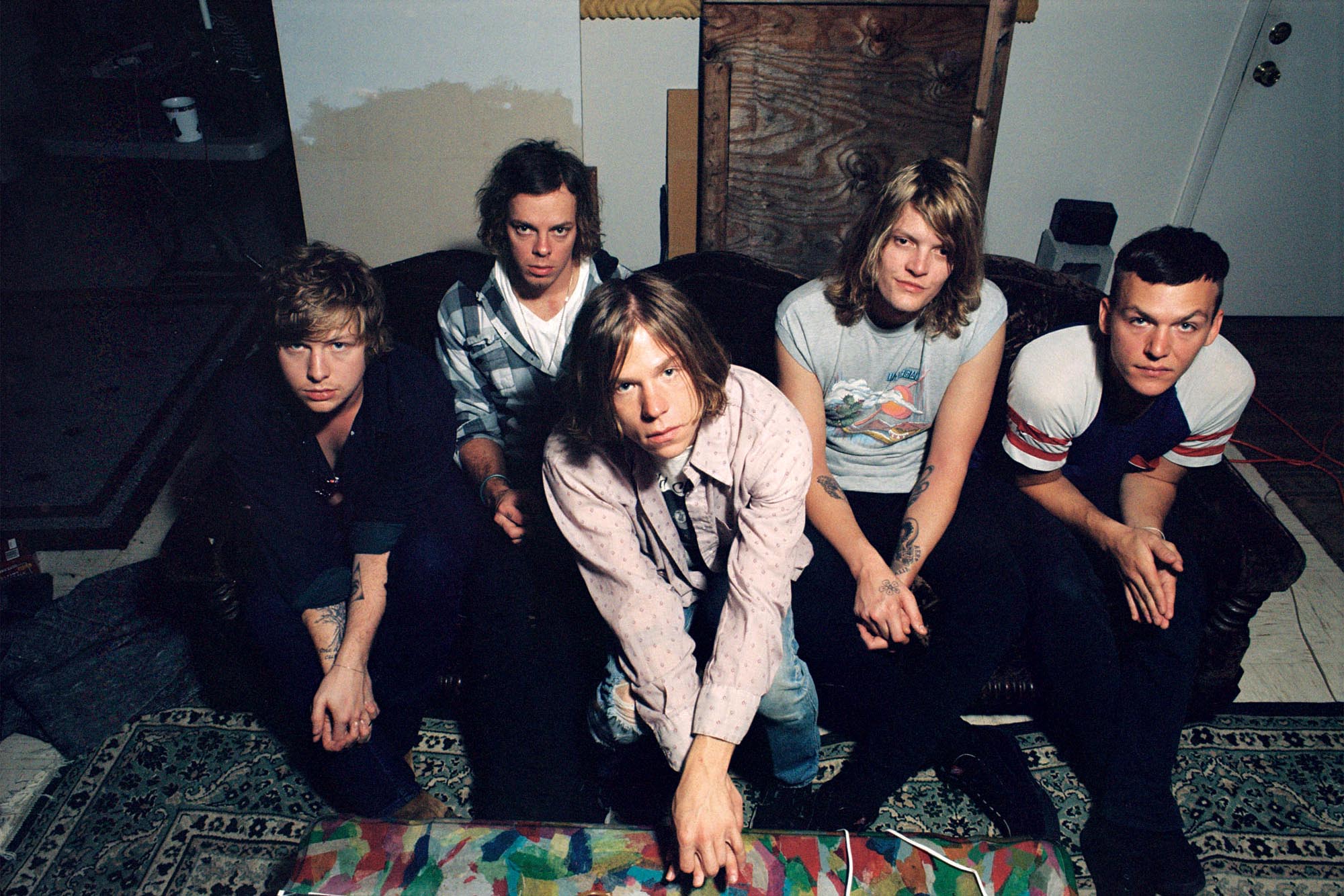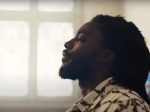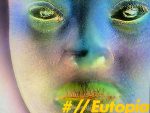Fans have patiently waited for Cage the Elephant’s fifth studio album, “Social Cues,” ever since 2015’s “Tell Me I’m Pretty” earned them a Grammy for Best Rock Album of the year and headliner status across the globe. The highly anticipated follow up, released April 19 via RCA Records, cultivates a plaintive narrative about coming to terms with the tumultuous cycles of life and death.
Offering commentary about the end of long relationships, the sudden passing of loved ones and the process of experiencing sadness and letting go, Cage the Elephant utilizes this album as a therapeutic purging of emotions. During their hiatus between records, band mates and brothers, Matt and Brad Shultz’s lives spiraled into a deep, dark sorrow, inspiring several of the themes portrayed in “Social Cues.”
Throughout this time, they lost one of their best friends to a drug overdose and another one to suicide, all while lead singer, Matt, struggled to accept the deterioration of his seven year marriage. The end result is a deeply heart-wrenching soundtrack about allowing yourself the opportunity to wallow in self-pity, as long as you bounce back once the mourning period is over. The brothers believe that the message behind their lyrics and melodies is to eliminate feelings of guilt about grieving, or obsessing over the expectations of society, and to simply create as much as you can while you still have the opportunity.
In an interview with NPR, the brothers discussed how the tragedies they came face to face with translated into their most recent music. Lead guitarist, Brad, states that loss “subconsciously affects everything about you.” They were both brought to tears upon communicating the immense love they share for one another, agreeing that leaning on each other helps them carry on through moments of sadness and anger, and continue producing art to share with the world.
The personal life of one band mate can inevitably affect the entire band. This is illustrated by the album’s final track, “Goodbye,” which took every ounce of the lead singer’s strength to gather the courage to record. According to Cage the Elephant, the older Shultz brother “was only able to muster one take [at] the vocals, which he recorded while lying down on the studio floor.” Afterward, he walked out and cancelled work for the next two weeks.
Although the song was initially written as a reflection of the closing stages of Shultz’s marriage, the singer says that the lyrics gained a whole new meaning when they released it, the day after his best friend’s funeral. There’s a painfully relatable ache in the back of Shultz’s throat as he softly sings, “All my life I read between the lines/ Held on too tight, you know I tried/ But in the end it left me paralyzed/ It’s alright, goodbye, goodbye.” By revisiting both the good parts of the relationship, as well as recalling the bad times, Shultz realizes that in this life, people are bound to come and go, and the time has clearly come for him to say “Goodbye” to certain people, even if he still loves them.
In “Ready to Let Go,” a single the band released back in January, the delivery illustrates the emotional release of a relationship that both shaped and fulfilled the lead singer at some point during his life, but no longer serves to better him as a person now. The lead singer clearly begins to accept this hard-to-grasp concept when he sings, “Don’t you worry, baby, no sense trying to change it/ I’ma strike these matches, never had control/ I’m ready to let go, no, was I fooling myself?/ I’ma spread these ashes, never had control/ I’m ready, I’m ready, I’m ready to let go.” Shultz also directed a music video for the song, featuring the singer in a bright red latex bodysuit with blood streaming from his eyes and down his face.
Amidst the eerie melancholic sensation “Social Cues” powerfully exhibits, there are moments of genuine hope, you must believe in finding the light at the end of the tunnel. In “Love’s the Only Way,” the artists utilize descriptive imagery in order to paint a portrait of a brighter day on the brink of a horizon. Singing, “I can see the sunshine, breaking through the skyline/ I can feel the warmth it brings/ I can’t help but stop and think/ There’s gotta be a place/ Love’s the only way,” Cage the Elephant alludes to the faith they continue to carry about love, regardless of the pain it’s caused them along the way.
As well as a number of heartbreaking ballads, the tape also provides several catchy songs to sing along to, such as “Black Madonna,” “Night Running,” “Tokyo Smoke” and “The War Is Over.” In the latter, the creative artists construct a double entendre with the lyrics, “You can build your walls, love will tear it down/ You can hide your heart inside a man-made house/ You can build your walls, build ’em to the sky/ One day you will find love was on both sides/ The war is over.” This song refers to the walls people put up when they want to guard their vulnerabilities, as well the wall President Trump is trying to build to keep illegal immigrants from entering the country, unbothered by the fact that they are humans with hearts and souls.
When you consider that the Shultz brothers’ passion for music began when they dug a drum kit out of a dumpster in Kentucky at ages seven and eight, the fact that they now have millions of supporters worldwide is incredible. “Social Cues” is well-thought out and well-executed, offering fans an inside look into what the band has had to overcome the past few years. It’s a well-rounded record with a mixture of depth and variety.
Through all the pain and suffering that members of Cage the Elephant have gone through in the past four years, somehow they’ve still managed to construct a masterpiece for the masses. “Social Cues” is now available on all streaming platforms.
















